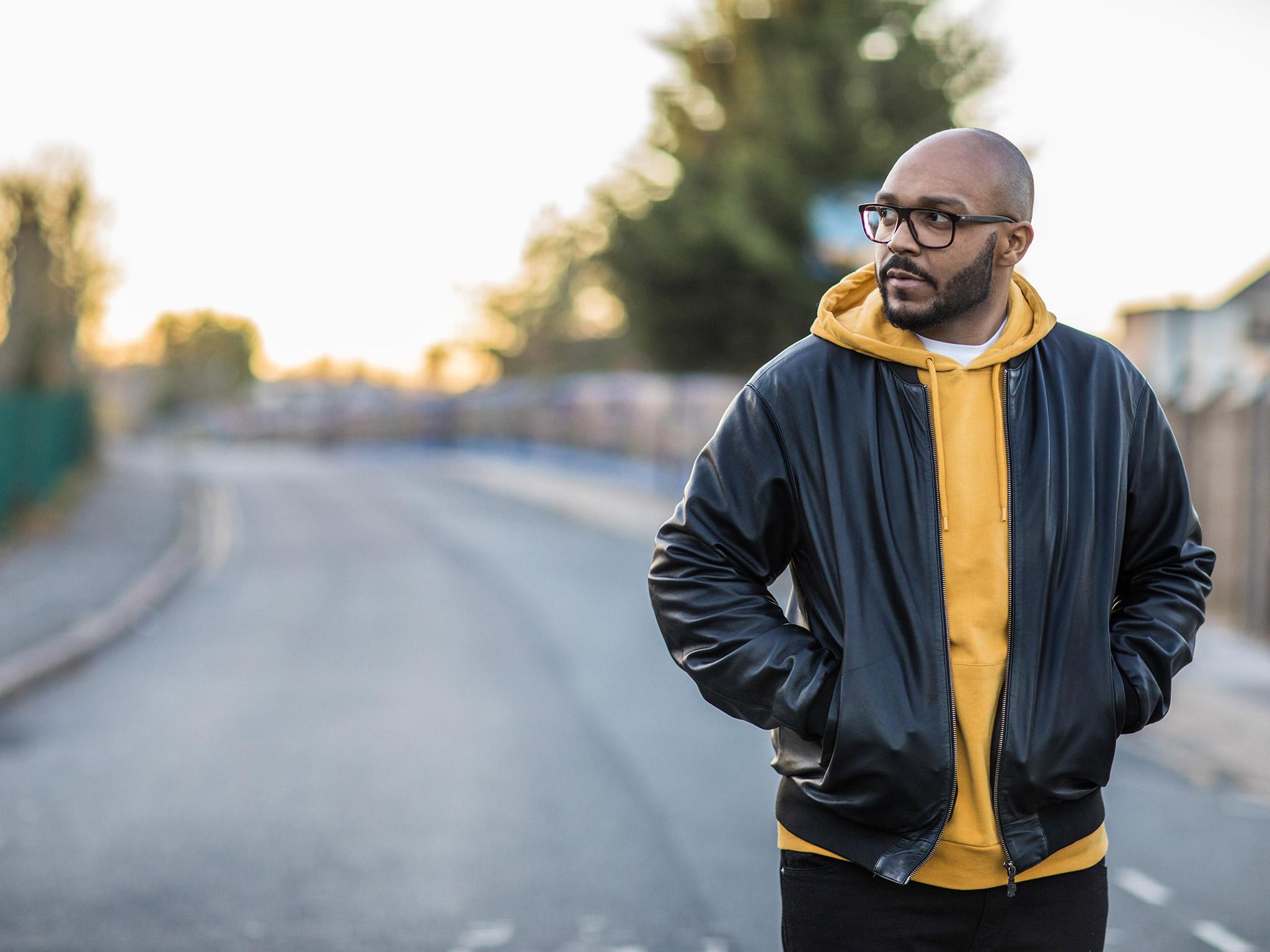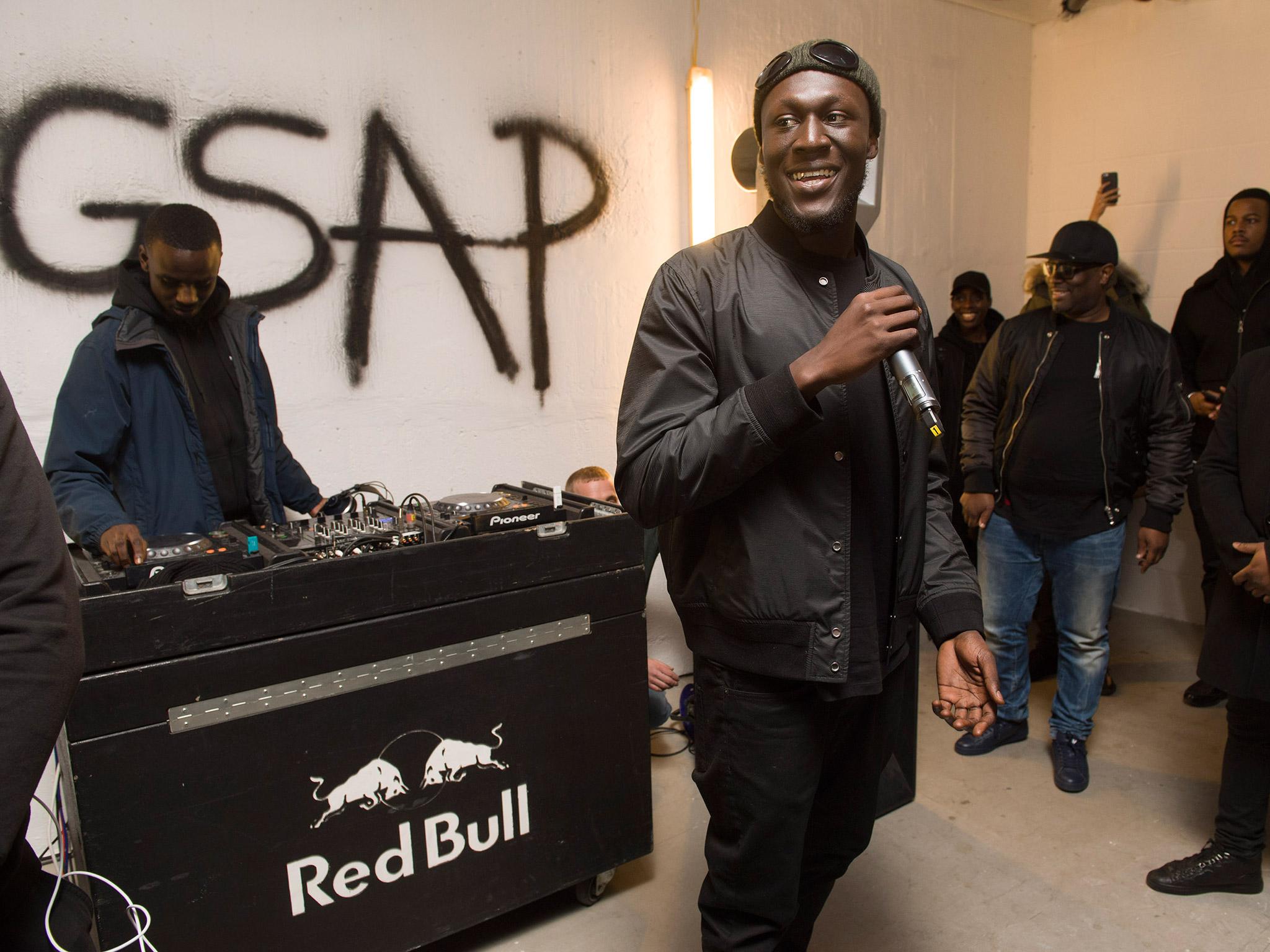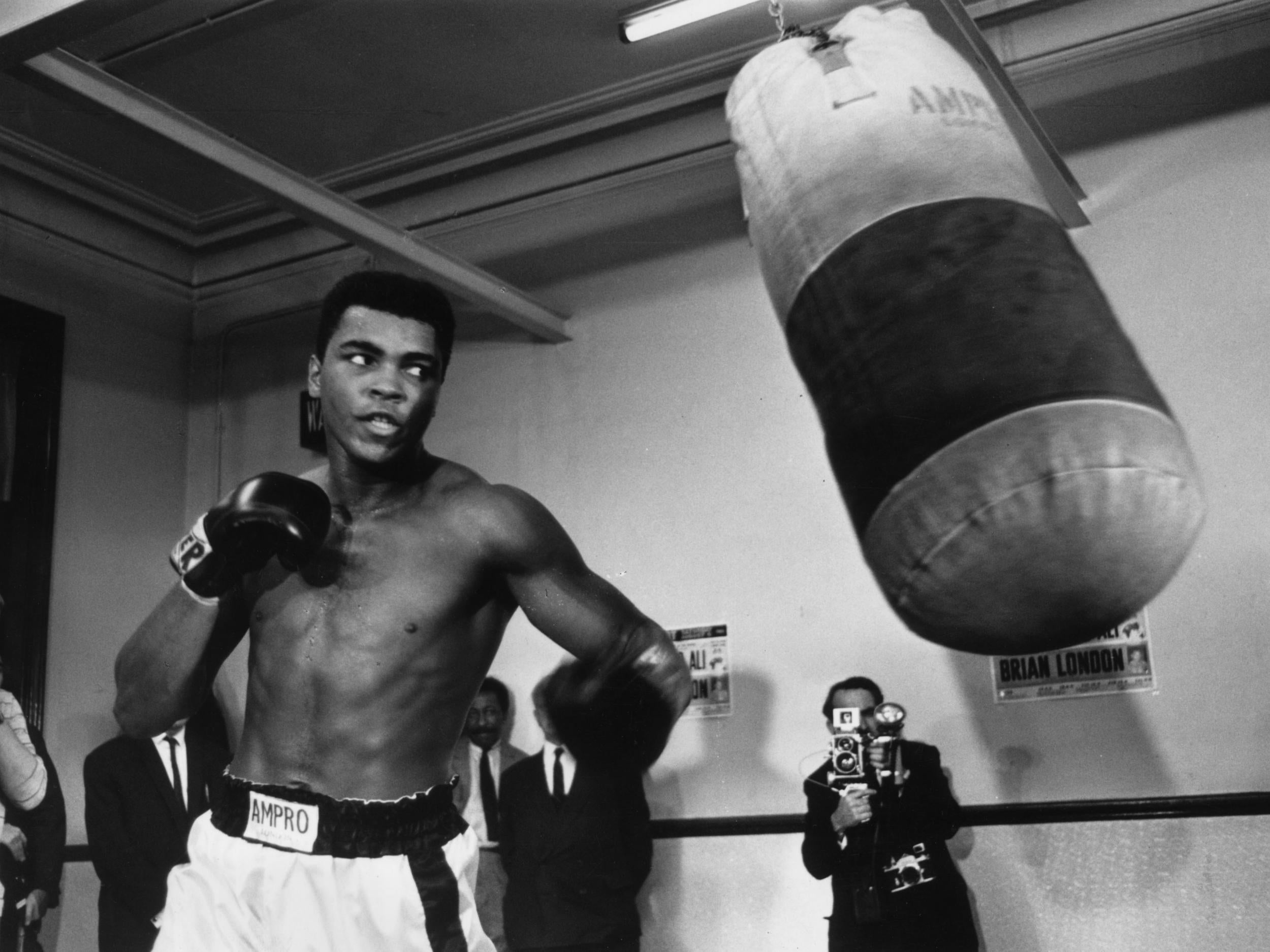Radio 1 DJ MistaJam opens up about dealing with depression and bullying
The broadcaster speaks exclusively to The Independent about mental illness and why men need to learn how to express their emotions

Your support helps us to tell the story
From reproductive rights to climate change to Big Tech, The Independent is on the ground when the story is developing. Whether it's investigating the financials of Elon Musk's pro-Trump PAC or producing our latest documentary, 'The A Word', which shines a light on the American women fighting for reproductive rights, we know how important it is to parse out the facts from the messaging.
At such a critical moment in US history, we need reporters on the ground. Your donation allows us to keep sending journalists to speak to both sides of the story.
The Independent is trusted by Americans across the entire political spectrum. And unlike many other quality news outlets, we choose not to lock Americans out of our reporting and analysis with paywalls. We believe quality journalism should be available to everyone, paid for by those who can afford it.
Your support makes all the difference.As a presenter on BBC Radio 1 and a DJ who regularly performs at Glastonbury Festival and in Ibiza, MistaJam has been the soundtrack to many, many an amazing night out for his audiences.
So, it’s particularly powerful when someone like him, whose name conjures up images of sun-drenched parties and messy fun in fields, speaks out about coping with the darker sides of life from depression to bullying. But, he tells The Independent, as a father of two young children, a broadcaster, and a DJ, he wants to use his fame to break down the stigma surrounding mental health and shake up what it means to be a man in 2017 at a time when suicide is the biggest killer of men under 45 in the UK.
Most recently, MistaJam helped to compile an alternative power list for Lynx’s Men of the Moment campaign, alongside fellow broadcaster Reggie Yates and Olympian Tom Daley. Winners included Grime musician Stormzy, who was widely praised for being honest about his struggle with depression; heavyweight boxing champion Anthony Joshua, Lion actor Dev Patel, Prince Harry, and fashion designer Charlie Casley Hayford.
The Independent spoke to MistaJam about the importance of the Men of the Moment campaign, the challenges facing men of all ages, and why men need to learn it's OK to cry.
Why did you get involved in the Men of the Moment list?
When the request came through asking me if i'm interested and I jumped at the chance. There are so few opportunities to really celebrate success in the UK without there being a strict criteria. It went on feel rather than specifics. There are a lot of power lists and awards, but not really anything for people who have gone beyond the call of duty in their respective fields being held up next to each other to inspire others.

Why did you choose the men who are on the list?
I sat down and thought 'who are the people who really inspire me?' There is a lot of pressure on men of all generations at the moment to live up to male stereotypes and to be the typical alpha male. When you look at the dominant images that are being portrayed of men there is a lot of emphasis on muscles and model good looks.
Even if you go online to buy some clothes, all of the models look similar. I chose people across the worlds of entertainment, acting and music who aren’t afraid to be themselves at a time of social media when people are constantly being judged. These people inspire me as a young father and a broadcaster and a DJ.
What are some unique challenges that men face in the 21 century?
I can only speak from personal experience, but I’ve got a young son who’s four and I look at things that are being presented in front of him. We are living in an ‘always on’ time of 24 hour news, and social media being so prevalent, and smartphones that are so super smart. People are being digitised and living life in a digital space. It feels like there’s lots of pressure to constantly be achieving and constantly look fantastic. There was a time when the only people worried about being camera-ready when they left their front door were major celebrities. Now, we are all living life in front of a lens. And whether that be a selfie or someone else taking a photo of you, there is a lot of documentation of lives online. People are doing stuff for the ‘gram, so to speak.
The thing that doesn’t get championed is real life. There is a lot of artifice and pressure, not just for young men but all young people, to live their lives via the lens. The difference is that young men tend to not have the conversations about it, and tend not to talk openly about their thoughts and feelings. There is still very much a 1950s mentality that a man has to be the breadwinner. A man doesn’t show emotions. A man puts up and deals with it. I think that into a lot of people’s discomfort and fear about speaking about their emotions. There is a lot of pressure to live up to very unrealistic ideals. Whereas in my experience a group of females will sit down and have an honest discussion about their feelings. Men don’t do that.
What we are trying to do with Lynx Men of the Moment is to break down those stereotypes and barriers so men don’t feel ashamed about talking about what is happening to them. You see stories about how men are searching online “is it OK to be a man and questions his sexuality?” and "is it OK for a man to cry?", “is it OK to be a man and shave your armpits?” It’s crazy when you think about it. All of these things can be discussed, but men for some reason choose not to.
How has the pressure to live up to masculine stereotypes affected you?
I think there has always been a lot of pressure on men at any given moment to live up to the masculine ideals. I’ve been very lucky that I’ve got an amazing support network and I know if I need to talk to someone I can do that. Having experienced depression in the past and going through that whole process and realising that all it took was a friend to say ‘are you alright?’ for the barrier to be broken. I think there are a lot of people who aren’t in the blessed position I’m in where I have people supporting me. Looking at the past and what I’ve been through to get myself to this point in 2017, I’m worry about whether my children have got a similar kind of support network. There are a lot of young men around the country who don’t have that support network. So being able to put out a positive and honest representation of who I am and what I do via social media, via what I chose to do with my career is very important.
After Stormzy bravely spoke about having depression do you think it’s important for more high profile figures to speak about mental health?
No one has any responsibilities to anyone but themselves. Anyone willing to be that open, it’s going to help. But if we say that anyone in the public eye needs to do that we are putting up another unrealistic expectation on what masculinity means in 2017. We need to break down the stigma. Depression and mental health can hit anyone at any time. Its indiscriminate, it’s a disease. And the more we can talk about it, the more we can break the barriers and hope to infiltrate that locker room culture.
I would tell me 14-year-old self 'there is no shame in crying, getting it out of your system and talking about it'
It’s not necessarily just misogynistic chat that men don’t feel comfortable doing, but they feel like they have to to fit in with the lads. It's about having an honest conversation like ‘do you know what guys I’m not very happy.’ And it’s not about saying ‘dry your eyes mate. Stop whining like a girl’. It’s about saying ‘I understand, but not only that I’m going through it too and you’re not alone.”
Are there any big changes we need to make in how boys and men are raised? Do we need to change what we teach in schools?
It needs to be normalised. Having a lesson about it at school doesn't make it like it's normal, but like its extraordinary. You'd be giving bullies ammunition. And being someone who was bullied quite extensively as a child, the last thing that you want to do is to introduce something that will give the bullies more ammo. What I say to my kids, I've got a seven year old daughter and a four year old son, is that anything is happening that they want to discuss with us - whether they talk to me or their mother or sit down with both of us - that they have a conversation. I think that's the only thing they can do and the only thing we need to do is normalise a conversation around thoughts, feelings, around where you can challenge stereotypes and it is OK to ask questions.

What advice would you give your younger self?
Just keep going don't give up. It is normal to be bullied but you can come out of the other end of it. It is normal to feel depression but you can come out the other end of it. It is normal to feel like you don't fit in, because nobody fits in and it's great to be different. That's why I felt it's so important to be involved with Lynx Men of the Moment, when you look at the list no two men are the same.
It is normal to be bullied but you can come out of the other end of it. It is normal to feel depression but you can come out the other end of it
There are lots of different kinds of people from different kinds of backgrounds doing different kinds of things. And they are all successes in their own area, but have all had to go through some sort of fight or process to be able to get to where they've go to. If I could talk to my 14-year-old self I'd say 'keep going and keeping talking. There is no shame in crying, getting it out of your system and talking about it.“
Which men inspire you, dead or alive?
Growing up in the '90s and looking at looking at popular culture there weren't many people that looked like me or who had similar interests to me, I was very much a chameleon. I took influence from lots of different kinds of people whether it was Linford Christie or a Prince Naseem or a Muhammad Ali. Looking at musicians like Michael Jackson, and Prince and Bowie and Stevie Wonder. And those people have had long careers, like Elton John - who has lived life unashamedly as himself.
When you look at the Men of the Moment list it’s a snapshot of people in the UK dancing to their own beat. There seems to be so many people who are unashamedly living their lives in the way they want to live it, and using social media as a positive tool. And they are allowing people into their lives as a positive tool. People like MNEK, who is one of my my choices for the men of the moment, he's an out proud young African-British man who writes an amazing pop record and produces fanatically and who is completely proud of who he is. When you go back ten years you're struggling to find someone who looks like him and was doing what he does. There will be people looking at him thinking "if it's all right for MNEK and he's fine then maybe I can be myself and be fine."
Feminists often argue that the fight for equality will also help men by hitting back at toxic masculinity and trying to level the playing field. Would you call yourself a feminist?
I think that’s such a loaded term in 2017 that I don't identify as anybody other than myself. When you try to attach yourself to any kind of ideological standpoint there are the positives and negatives. For me I've always been someone who experienced racism for a long and sustained time at a young age and experienced discrimination and bullying and mental health issues, with depression and lots of different setbacks. And for me to be against anyone just being able to live their best life is so counterproductive and counter to who I am that I could never, ever do that. But to give myself the title I think as well is very counterproductive. I wouldn't identify with anything other than myself.
Is there anything else you would like to add?
It feels like we are finally making a breakthrough in the mainstream media about representation and how the world exists in lots of different colours across everything whether it would be political beliefs, religious beliefs, gender, or sexuality. I think that anything that can show you that you can just be free to be yourself is the most important thing, and that's what I try to do. I've ended my DJs sets for years with Bob Marley's "One Love" because it really is that thing of we are all kind of one people. And the more times we can think of that and look around and go "oh, I've just been in a field at a festival and had an amazing time with a bunch of strangers I've never met before who are so very different to me, but we've all had this same experience" then I think the more that hopefully the future will be a lot brighter than it currently looks.
Join our commenting forum
Join thought-provoking conversations, follow other Independent readers and see their replies
Comments